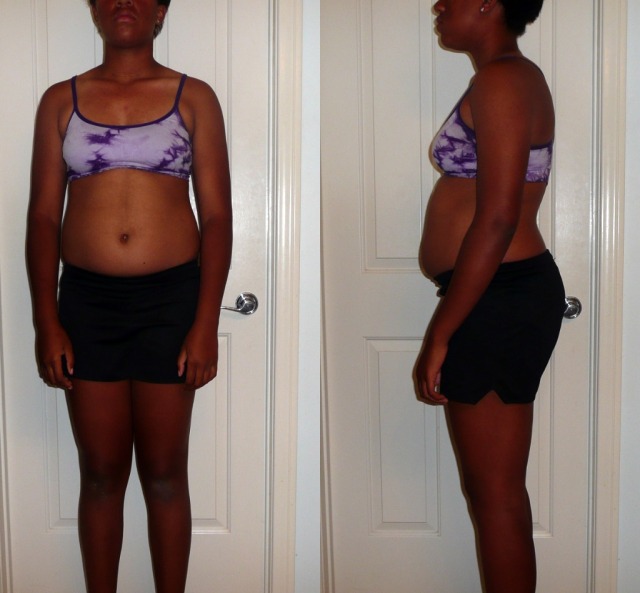weight gain working night shift
Question
Hello,
I work overnights 2am- 10 am. In the past year I've done this shift, I've gained more than ten pounds. I try to eat healthy, bringing small snacks to work.
I think the problem is when I go home, I'm hungry and tired. I eat my lunch then go to sleep for 2-3 hours. I'm then up with my husband for a few hours, we make dinner then an hour or two later I'm going to sleep again. I'm in such a fog for most of the day- I'm really not feeling like doing any exercise at all.
Do you have any suggestions?
Best,
Lisa
Hi Lisa,
It's a known fact that doing shiftwork is very stressful to your body.
Here is some information from the Canadian Centre for Occupational Health and Safety on shiftwork:
A shiftworker, particularly one who works nights, must function on a schedule that is not natural. Constantly changing schedules can:
upset one's circadian rhythm (24-hour body cycle),
cause sleep deprivation and disorders of the gastrointestinal and cardiovascular systems,
make existing disorders worse, and
disrupt family and social life.
Scientific studies throughout the world have shown that shiftwork, by its very nature, is a major factor in the health and safety of workers.
What are the effects on circadian rhythms?
Many human physical functions follow a daily rhythm or a 24-hour cycle. These cycles are called circadian rhythms. The word circadian comes from the Latin "circa dies" which means "about a day." Sleeping, waking, digestion, secretion of adrenalin, body temperature, blood pressure, pulse and many other important aspects of body functions and human behaviour are regulated by this 24-hour cycle. These rhythmical processes are coordinated to allow for high activity during the day and low activity at night.
Normally, the body uses cues from its processes and from the environment such as clock time, social activities, the light/dark cycle, and meal times to keep the various rhythms on track. For example, body temperature is highest during the afternoon and early evening (6:00 p.m.) and lowest in the early morning (4:00 a.m. or just before sunrise). However, if the person is working at night, the body temperature does not have as much variation during a 24-hour period as it would normally. The temperature rhythm and other body rhythms get out of sync: these rhythms also get out of phase with the person's activity pattern. This disorientation can lead to feelings of fatigue and disorientation. "Jet lag" is a term often used to describe these feelings.
Some rhythms adapt in two to three days while others change only after longer periods. People adapt to new schedules at different rates as do the different rhythms. Total reversal of circadian rhythms may never occur because on days off most people go back to a "normal" day schedule. Frequent changes in schedule and disruption to circadian rhythms can lead to chronic fatigue and other health problems.
What are the changes in sleep patterns?
Disruption of both the quality and quantity of the normal sleep is inevitable in shiftwork particularly where night work is involved. The daytime sleep is seldom as deep or as refreshing as sleep at night. The problem is greater if there is not a quiet, dark, comfortable place to sleep. Even when disturbances are removed, a worker who returns home in the morning may still find sleep impossible or less refreshing. This difficulty occurs because the circadian rhythms are no longer synchronized. Being constantly tired is a typical complaint of shift workers.
-----------------------------------------------------------
Some things you might want to try:
-Make sure you are including some foods that are a good source of protein (such as nuts, eggs, legumes, meat/fish/poultry, cheese, yogurt, peanut butter) in your snacks at work. This will help you to stay more alert during your shift. Try to eat enough throughout your shift that you're not starving when you get home - it's recommended to eat only a light meal right before you go to sleep for the day
-Make sure you're drinking enough water as well - even mild dehydration can contribute to fatigue. You are drinking enough if your urine is very pale (straw-coloured) or clear.
-Because you are breaking up your sleep into 2 separate "shifts", it's very likely you are not getting enough deep sleep, which is crucial to feeling well-rested. Also, studies have now shown that inadequate sleep can lead to weight gain because it causes hormonal changes in your body that promote fat storage. If it's at all possible, I would suggest you get all your sleep in one session instead. I know you need to balance this with time with your husband, but you also need to make sure your health needs are being met. Can you sleep until your dinner hour, make dinner and then have some time together before you have to leave for work?
-As far as getting in some exercise, I think if you adjust your sleep schedule and eating as suggested, you are probably going to find you have a bit more energy. The most important thing is, even if you are feeling tired, to try and do a *bit* -even if it's only 10 or 15 minutes. Even a little exercise is energizing, so if you keep at it, you will find you are able to do a bit more every day. One easy way to get started is to buy a pedometer to track how many steps you walk each day (wear it all day-from when you get dressed for the day until you go to bed). You should aim for a total of 10,000 steps per day. When you first start out, you may be doing only 3000-4000 steps per day - gradually work up from there to 10,000 steps. You can use little opportunities throughout the day to squeeze in more steps (a quick walk around the block when you get home from work, walking up and down stairs at work on your break, maybe take an after dinner walk with your hubby).
Once you have been walking for a while, you may have more energy to take on some more rigourous cardiovascular activity a few days a week. I would also recommend trying to add in some strength training 2 times a week (this increases your "lean body mass"/muscle mass which increases the number of calories your body burns at rest). A good book to get started with is _Sculpt Your Body with Bands and Balls_ by Denise Austin. Resistance bands are very portable so you can even take them to work with you and do a few exercises on your break.
Hope that helps!
Karen
www.getfitwithkaren.com
- Prev:Celiac concerns
- Next:Degree in Nutrition
Related Articles
-
Blueberries against Alzheimers disease
QuestionRecently, everybody is talking about blueberries health b
-
late-night eating
QuestionI am a 22 year old college student. Exercise and fi
-
How to lose my belly fat
QuestionQUESTION: Hello i want to know how i can lose my stomach
-
a good diet
QuestionI just turned 16. i am a male. i m 173 cm tall. Ok my mai
-
washing fruits
QuestionHi Karen, Recently I have been concerned about eating fru
-
Hamburger
QuestionHi, I eat red meat a couple times a month because I hear
More Great Links




